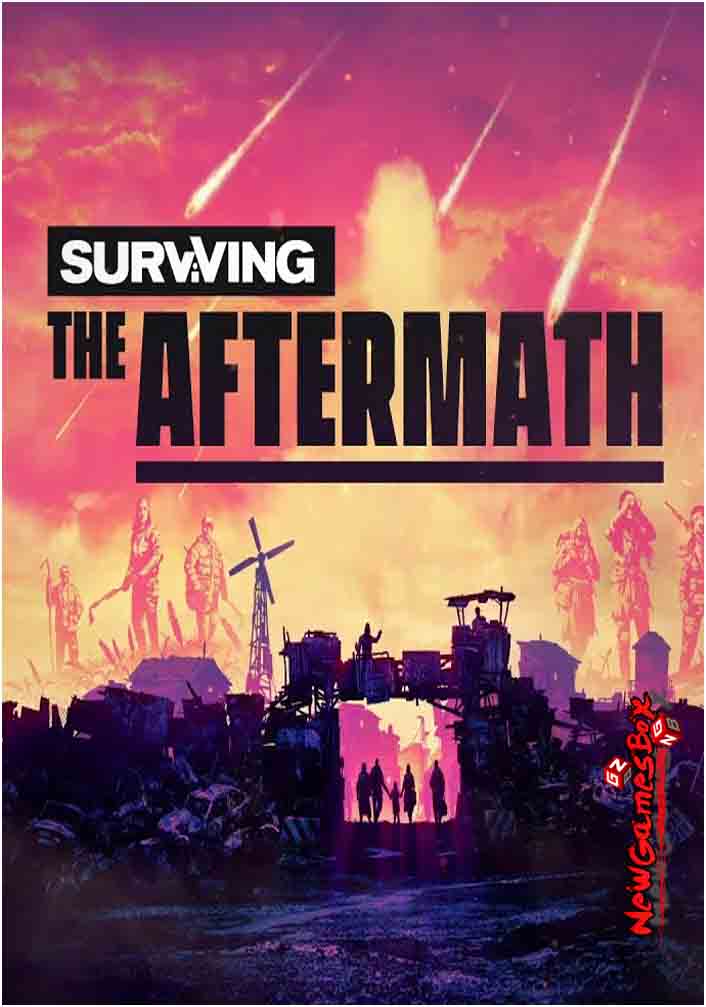

Clark and Ortiz’s continued work provided the source material for the new exhibition at the German Consulate. Ortiz, had begun going through those old photos when McCombe was alive, prodding the reticent photographer to talk about the history behind his pictures.
#The aftermath full
He left behind folders and envelopes full of negatives from his decades in photography. McCombe, who turned to farming after the original LIFE stopped publishing in 1972, died in 2015, at age 92. His many memorable stories for LIFE included a report from inside the Navajo nation and an essay on the vanishing American cowboy. McCombe, who was inspired to take up photography as a youth when he saw a copy of LIFE, would go on to become a staff photographer at the magazine. The photos in a new exhibition of McCombe’s work at the German Consulate General in New York tell the story of the deprivation and destruction of war. Now Europe is once again at war and citizens are facing the same dire circumstances due to Russia’s invasion of Ukraine. McCombe grew up in the Isle of Man and by the time he was 18, he was working as a war correspondent in Europe, shooting photos of the violence that was tearing up the continent during World War II. If you’re after a thoughtful and original work of art, this is not the film you’re looking for.The pictures that legendary LIFE photographer Leonard McCombe made at the beginning of his career in the 1940s have a resonance that hits particularly hard in 2022. If you’re into cheesy romance and WWII period pieces, be my guest. And a thank you to casting director Arwa Salmanova Alexander Skarsgård and Kiera Knightley are at the very least nice to look at. Honestly, stitch the b-roll together and you’d have a lovely short film. The German forest and chic cabin, the beautiful wood-paneled great room with a Mies van der Rohe chair and Steinway piano, the river views from the balcony - all gorgeous. I’ll give director James Kent (“Testament of Youth.”) one compliment: The filming locations are gorgeous. Some things just don’t speak to me (like the recent “Mandy,” starring Nicolas Cage) but I appreciate the aesthetic or literary value. I feel that it isn’t often that I see a truly bad film. I found myself looking at my watch after only an hour. Knightley too, adds little of herself to the role the romantic arc between Rachel and Stefan could easily be plopped into another setting without changing a thing. Skarsgård manages to inject fervor here and there, but he leans into stereotypical German stoicism at the expense of originality. In particular, Jason Clarke gives a passionless performance. The acting is terrible, though the lackadaisical screenplay might have something to do with that. This overused “running away but turning back at the last second” business plays as predictably as you might imagine. They make it all the way to the train platform before Rachel gets cold feet and runs back to her husband, now that he has proved to her that he actually does miss his dead son.

Rachel and Stefan plan to run away to the Alps once Lewis returns from his trip. During one of these trysts, the viewer is treated to an unexpected and very full-frame shot of Alexander Skarsgård kissing Kiera Knightley’s nipples. While he’s away, Rachel and Stefan don very stylish outfits and go stroll in the woods to Lubert’s well-furnished cabin. This rendezvous flourishes into an affair after the Colonel is called away to the “Russian Zone” to deal with an unnamed Nazi who offers nothing in terms of plot development, aside perhaps from an attempt at showing the Colonel’s merciful nature. Morgan, lonely and missing her son who died during the Blitz, ends up having sex with Herr Lubert on the dining-room table after her dinner party guests bid goodnight. Lewis is always out, conducting his military work on the streets of Hamburg - streets populated by now-homeless Germans searching for loved ones in the rubble and ashes. Out of pity, Lewis allows Stefan and his daughter Freda (Flora Thiemann, “Tigermilch”) to stay in the house but asks that they relocate themselves to the cold attic. Much of the drama in the film seems exploitative against the post-war backdrop.


 0 kommentar(er)
0 kommentar(er)
